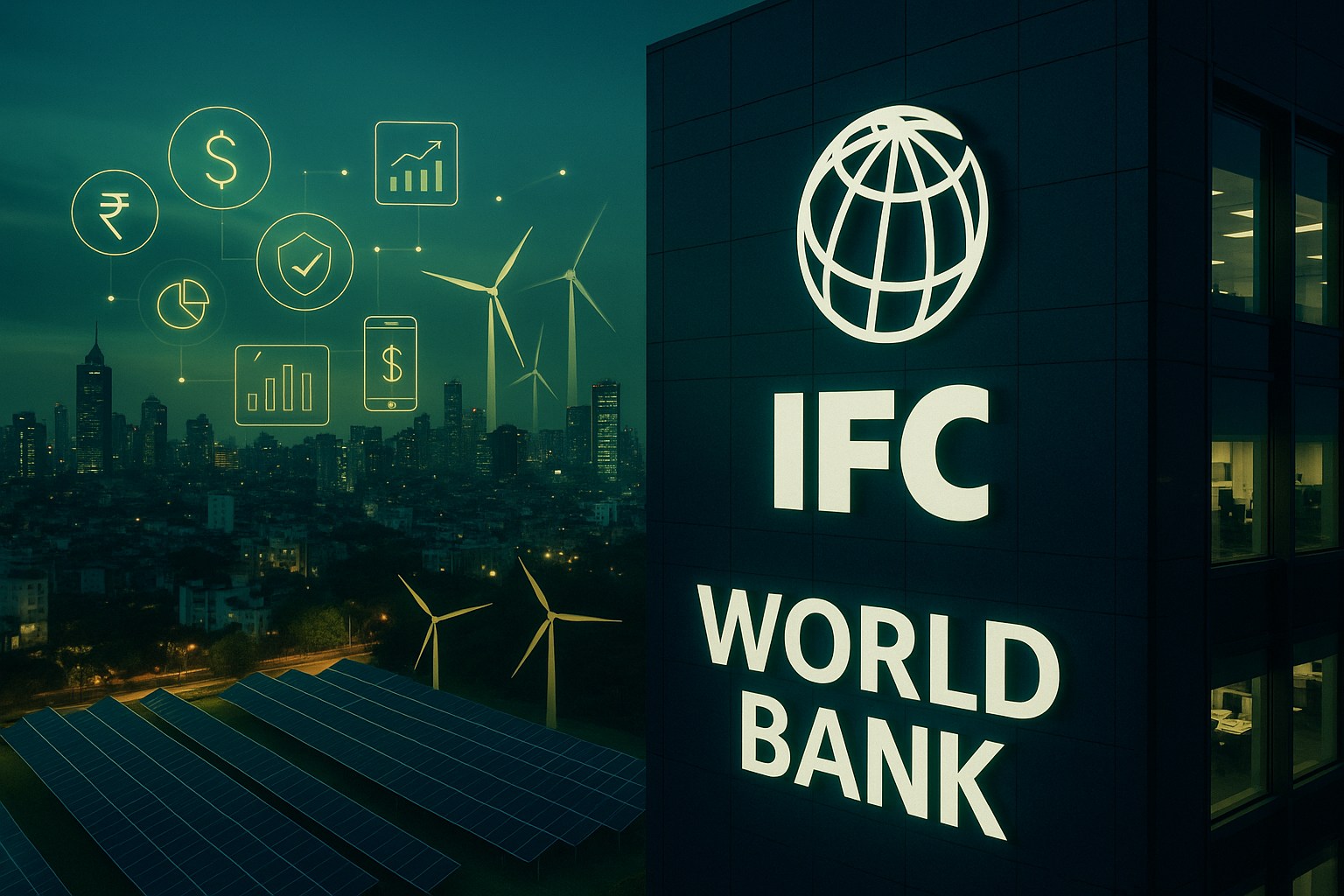The International Finance Corporation (IFC), the private sector arm of the World Bank Group, plans to double its investments in India over the next five years, according to Managing Director Makhtar Diop. The move underscores India’s centrality in IFC’s global strategy, reflecting confidence in the country’s growth potential, reform momentum, and private sector dynamism.
This expansion is expected to channel billions of dollars into infrastructure, climate financing, fintech, MSMEs, and green energy, further strengthening India’s development trajectory.
Core Development
Diop noted that India is already one of IFC’s largest investment destinations globally. The new plan aims to:
Scale up investments across critical sectors including healthcare, logistics, financial services, and renewable energy.
Deepen focus on climate finance and sustainability, aligning with India’s green transition targets.
Support MSMEs and fintech innovations, which remain critical for financial inclusion.
By doubling its exposure, IFC hopes to unlock private capital flows, complement government efforts, and build resilience in key sectors.
Why IFC is Betting Big on India
Strong Growth Outlook: India remains one of the fastest-growing major economies.
Policy Reforms: GST 2.0, financial sector strengthening, and ease-of-doing-business reforms attract global investors.
Private Sector Opportunities: Large untapped demand in digital, climate, and infra sectors.
Stakeholder Impact
Businesses & MSMEs: Gain better access to growth capital and global expertise.
Financial Institutions: Partnerships with IFC enhance liquidity and credit support.
Government: Reinforces India’s position as a trusted global investment destination.
Industry & Policy Reactions
Economists welcomed IFC’s announcement, calling it a vote of confidence in India’s reforms and private sector ecosystem. Industry leaders also pointed to the importance of channeling funds into green energy and sustainable projects to ensure long-term resilience.
Challenges Ahead
Execution Risks: Ensuring capital reaches high-impact projects without bureaucratic delays.
Global Headwinds: Trade tensions and financial market volatility could influence flows.
Sustainability Standards: Balancing rapid deployment with robust ESG compliance.
Strategic Outlook
By committing to double its investments, IFC is not just financing growth but also signaling India’s role as a pillar in global development finance. If executed well, this initiative could catalyze private sector participation, accelerate green energy adoption, and strengthen financial inclusion.
Why This Matters
Global institutions like IFC act as multipliers of confidence. Their commitment validates India’s policy reforms, financial resilience, and private sector potential, reinforcing the country’s journey toward becoming a $10 trillion economy.












